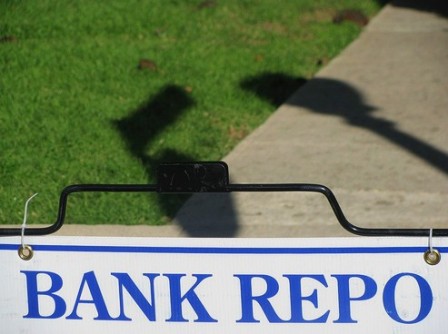Commercial Real Estate: The Next Real Estate Bubble
In cities and towns across the country, the number of empty store fronts and office buildings is growing. For example, office vacancy rates have risen to 16.3 percent and are expected to rise to 17.4 percent by the end of the year, according to the National Association of Realtors.
Federal regulators and industry analysts are sounding the alarm. Reasons all point back to a struggling economy.
Delinquency and foreclosures are contributing to commercial real estate vacancy. Nearly half of all commercial real estate is “underwater,” according to a report by the Congressional Oversight Panel. Businesses are drowning by paying high rents on low-valued property. Businesses are falling behind on rent also because fewer people are employed to fill office space or have the money to spend in retail stores.
As fewer businesses are able to pay rent, or as fewer companies are occupying office or industrial space, banks lose money and tighten credit. The tightening of credit could be catastrophic as commercial real estate loans last five years. At the end of the five years, the owner either has to refinance or pay it off in full.
If banks fail to lend out money to renew 5 year loans, many businesses, even those that can afford it, will be unable to obtain one.
It is a phenomenon that is expected to get worse, especially in 2011 as loans made in 2006, at the early stages of the financial crisis, will begin to expire.
FDIC Chair Sheila Bair has been speaking about the looming crisis for several months. On CNNMoney.com Tuesday, Bair said more banks will fail this year, because of commercial real estate.
“We are encouraging banks to raise more capital… and to set aside loan loss reserves to cover projected losses,” Bair said.
The Congressional Oversight Panel released a startling report earlier this month that lays out the grim realities. It says banks could loose $200 – $300 billion, and community banks are the ones most likely to suffer as they originate where most commercial property loans.
Paul Merski, Chief Economist and Senior Vice President of the Independent Community Bankers of America, an association that represents more than 8000 community banks, said the dire assessment is “overblown.”
“The vast majority of community banks are well capitalized and have put away loan loss reserves to handle any downturn in commercial real estate,” Merski said.
Merski said the impact on the economy will not compare that of the residential real estate bubble. He says the spending on commercial real estate is about a third of the real estate market.
Merski also says he expects the economy to improve, and a corrected economy would likely stave off a second recession.
But Peter Jackson, spokesperson for the Congressional Oversight Panel, said the panel stands by its findings. He said a troubled commercial real estate sector could spell problems for the economy.
“When commercial properties fail, it creates this downward spiral of economic contraction: job losses; deteriorating store fronts, office buildings, and apartments; and it also means the failure of some of the banks serving those communities,” Jackson said.
The Panel’s report has spurred Congress to act. Top Democrat on the Senate Banking Committee, Chris Dodd, wrote a letter to Fed Chair Ben Bernanke earlier this week. The letter supports efforts to encourage banks to modify commercial real estate loans. It also asked the Fed for a report on actions taken to ensure the possible crisis is contained.
And in the House, Representative Barney Frank’s Financial Services Committee has planned a hearing on the issue for Friday.
Follow Leigh Ann Caldwell on Twitter and hear an audio version of this story on FSRN.
Editor’s Note: Please follow The News Junkie Post on Twitter.
Related Articles













2 Responses to Commercial Real Estate: The Next Real Estate Bubble
You must be logged in to post a comment Login